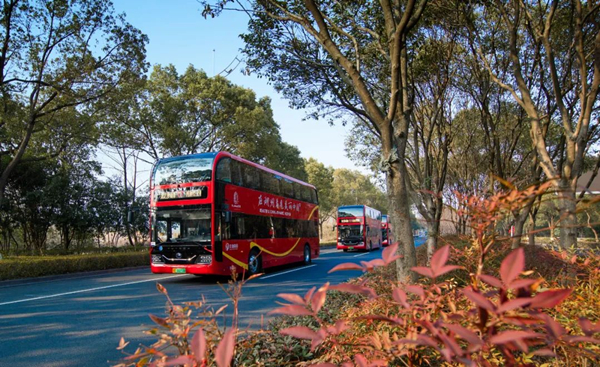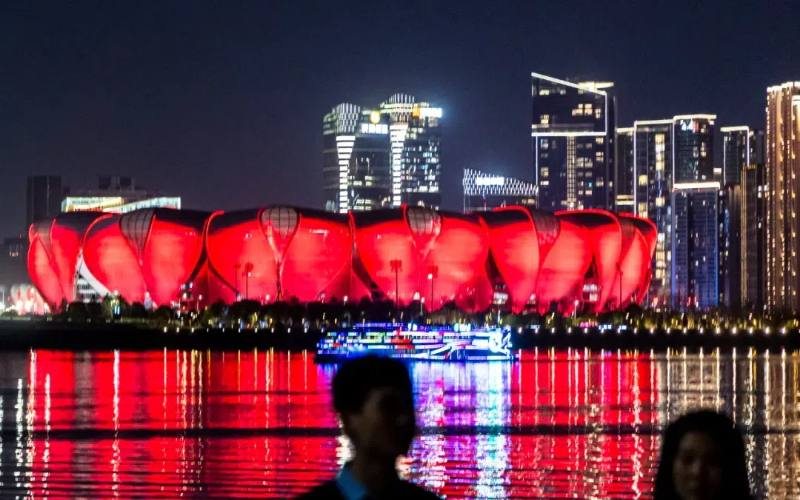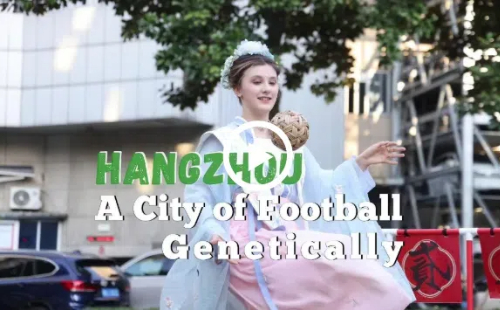10 yrs on: Wellbeing of Huzhou residents sees marked improvement

A fleet of buses is seen in Huzhou, East China's Zhejiang province. [Photo/WeChat account: huzhoufabu]
Huzhou has achieved outstanding accomplishments in improving people's wellbeing since the 18th National Congress of the Communist Party of China.
In a 2021 report evaluating people's sense of gain, happiness, security and identity, a key indicator adopted by Zhejiang to measure a place's common prosperity, Huzhou was ranked first in the province.
The 11 cities in Zhejiang were assessed based on factors including public safety, transportation, employment and entrepreneurship, and urban-rural gap. Huzhou scored 85.13 points, well above the provincial average, which was 83.38 points.
According to the report, 94.86 percent of Huzhou residents are satisfied with public security and 90.74 percent are content with the city's ecological environment.
In addition, the satisfaction rate towards public transportation and social assistance among them stood at 69.19 percent and 87.1 percent respectively.
Huzhou has been continuously pursuing a balanced urban-rural distribution of basic public services in fields including compulsory education and healthcare.
In February 2014, the city built an urban-rural integrated endowment insurance system. A year later, the local government also rolled out accidental injury insurance for the elderly.
In 2019, Huzhou became the nation's first city to have all buses powered by electricity, support mobile payment, and adopt a fixed-fare system, meaning the fare is no longer decided by distance, and this has significantly slashed public transportation costs.





 play
play